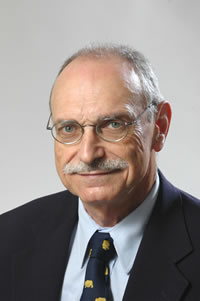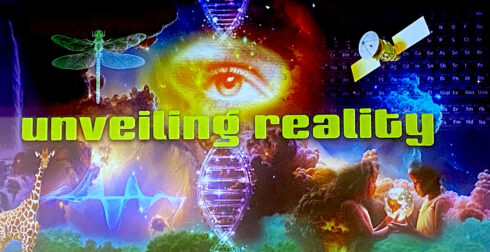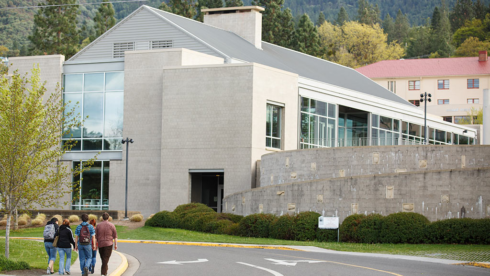 Bill Kastenberg, an engineering professor at the University of California, Berkeley, spoke Friday in the SOU science lecture hall as part of SOU’s Friday Science Seminar lecture series.
Bill Kastenberg, an engineering professor at the University of California, Berkeley, spoke Friday in the SOU science lecture hall as part of SOU’s Friday Science Seminar lecture series.
Kastenberg, who was invited to speak by SOU dean of arts and sciences, Alissa Arp, presented his lecture, “Being Human in the Post Industrial Ageâ€, to community members and SOU faculty and students.
Kastenberg received his PhD in the 1960s from UC Berkeley and was a professor at UCLA for nearly 30 years before returning to Berkeley to chair the nuclear engineering department.
Much of his teaching at Berkeley focuses on ethics in emerging technology.
He focused on the evolution of human consciousness, which he broke up into three eras. The eras consisted of the axial age, the enlightenment era, and the post-modern/post-industrial age.
Kastenberg stated that in the axial age, humans were simply physical beings, who became thinkers during the enlightment era. He explained the post modern/ post industrial age as a significant pardigmatic shift characterized by the recognition of human emotion.
“We are now evolving into emotional human beingsâ€, said Kastenberg, “Our understanding has been shifted.”
Human emotion has played an important role in research development decisions involving moral and ethical conflicts, the UCB professor said. He believes emotions can hinder scientists’ research development decisions.
“Our understanding of issues regarding post-industrial technologies like human enhancements or extreme experimental testing techniques raise internal ethical conflictâ€, Kastenberg said.
He explained that a person’s political or religious affiliations may have subconscious effects on their decision making processes, thus making emotional and ethical conflicts inevitable.
Kastenberg explained that people may not be emotionally ready to grasp new technologies, like animal testing. Not only will people consider moral aspects, but emotions will also be involved.
The Friday Science Seminar Series will continue for the next four weeks. Next Friday, SOU biology professor, John Roden will speak about stable isotope technology.
Last Spring, Roden received nearly a half-million dollars in grants for the science department to buy a mass spectrometer. The instrument is used to analyze atoms and molecules and can be used to measure tree-growth rings in trees hundreds of years old, which has been the focus of Roden’s studies. He is analyzing growth rings of coast Redwood trees.



